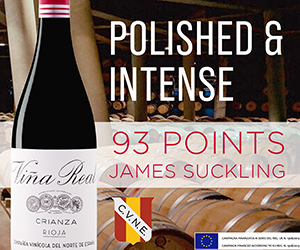Powerful Earthquake Rocks Chilean Wine Industry Epicenter was in wine region of Maule; As country digs out, vintners confront damages and looming harvest James MolesworthPosted: March 1, 2010 Chile's wine industry was not spared from the effects of the devastating 8.8-magnitude earthquake that struck the southern part of the country early Saturday morning.
Powerful Earthquake Rocks Chilean Wine Industry
Epicenter was in wine region of Maule; As country digs out, vintners confront damages and looming harvest
James Molesworth
Posted: March 1, 2010
Chile's wine industry was not spared from the effects of the devastating 8.8-magnitude earthquake that struck the southern part of the country early Saturday morning. Wineries in both the Curicó and Maule valleys, which are not far from the epicenter, were especially hard hit, and wineries further north in Rapel and Maipo also reported damage.
"Millions of liters are on the floor," said Sven Bruchfeld, whose Agricola La Viña project uses the Sagrada Familia custom-crush facility west of Curicó. "I lost 50 percent of my '09 Polkura and have no idea about my '09 Aylin Sauvignon Blanc, as bottles are everywhere. Most tanks are collapsed at the facility and I have no idea where the 2010 [harvest] will go. [This has caused] big, big damage to the industry."
The immediate focus across the center of the South American nation was rescue. The massive quake struck early Saturday about 70 miles north of Concepción, Chile's second-largest city. Sandwiched between the Andes and the Pacific, and located on a fault line, Chile is prone to quakes, but this was the largest in 50 years. Damage extended all the way to the capital of Santiago, 230 miles to the north, where bridges collapsed and the airport was damaged. On the coast, the quake triggered massive tidal waves--in one town, the water rushed 2,000 feet inland, killing hundreds and depositing fishing boats in the streets.
Aftershocks on Sunday and Monday only complicated rescue efforts. President Michelle Bachelet dispatched 10,000 soldiers to aid in pulling people from the rubble, setting up field hospitals and distributing food. The government reported that the death toll is currently 711 and expected to rise.
Wine is a leading industry in the two regions around the epicenter, Maule and Bío-Bío, and wineries will be crucial to the area's long-term economic recovery. The timing of the quake is particularly disruptive for the industry. This past weekend was the unofficial end to summer vacations and Sunday was slated to be one of the heaviest travel days of the year. Thousands of Chileans are now stranded in other parts of the country or overseas. Many winemakers reported family members trapped in the southern or northern reaches of the country, now cut off due to heavily damaged roads. Harvest is about to get underway, but between the travel difficulties, damaged facilities and disrupted electrical power, wineries will be hard pressed to process grapes normally.
"We wanted to start the white [harvest] on Thursday but now it's impossible without electricity," said Patrick Valette, who is winemaker at Viña Neyen de Apalta in Colchagua, but consults for the J. Bouchon winery, located near the epicenter of the quake. "There are lots of problems with the [Bouchon] bodega. We lost several tanks with wine and there's no electricity."
Though the quake was centered in the southern part of Chile, wineries further north still suffered damage. Alexandra Marnier-Lapostolle of Casa Lapostolle in Colchagua said she had lost several vats as well as numerous barrels and bottles at her older facility in Colchagua. Thankfully her new Apalta facility on the hillside was not damaged.
"Apparently the vats for the whites are intact and we'll be able to ferment the Sauvignon Blanc," said Marnier-Lapostolle, who was traveling when the quake struck. "This is all I know as the call was interrupted. I think it will take time to evaluate the real damages."
There were additional unconfirmed reports that Viu Manent and Viña Casa Silva, both located at the western end of Colchagua, as well as Viña Santa Rita's facility in Palmilla, were seriously affected. Reports were still sketchy overall though, as cellular communications, e-mail and electricity remained disrupted.

 quicksearch
quicksearch





